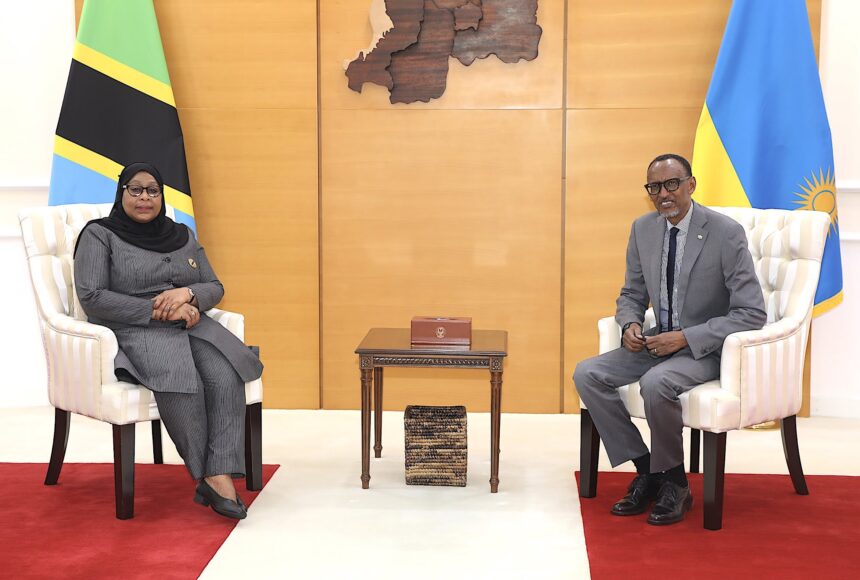Rwanda and Congo are on the verge of sliding back into bloody war again. If the regional powers like Tanzania and Kenya won’t take drastic measures to halt the imminent bloodshed, the two long enemies might fall into bloody war for the third time.
Rwanda and Congo are countries in the great lakes region, one of the most troubled and volatile region in the world. Other members in that region include Tanzania, Uganda, Burundi, Malawi and Kenya. These countries have been hampered by numerous external and internal conflicts attributed from their historical and contemporary problems.
In the great lake regions, unlike others, Tanzania is the country with the upper hand in bringing stability, considering size, economy and its extensive and invaluable role in the Southern African Liberation movement in the 1960s, which gives Tanzania a cutting-edge advantage in diplomacy within the region.
What makes Tanzania an upfront and immediate actor to rely upon in greasing the festering collision between Rwanda and Burundi? The urge by an incumbent EAC chair, Kenya’s President Uhuru Kenyatta, to deploy the newly created regional force into conflict may not be robust to ease the ongoing tussle unless we go back to the drawing board to understand the genesis of an upsurge.

It is pertinent to say that Tanzania is a reliable actor in resolving the Rwanda and Congo conflict since she was greatly involved in determining the internal affairs of the respective countries. Apart from that, are other factors that make Tanzania a prospective actor in resolving the underway tussle.
Tanzania is often perceived as a relatively neutral zone, a relatively positive force in the region,” explained Yolande Bouka of the Institute for Security Studies. Wrapped up in that perception is the still towering figure of Julius Nyerere, the country’s first president.
Tanzania’s diplomatic experience is unmatched in the great lakes region. Tanzania has to use that experience and the name it has earned for itself globally as the region’s peaceful state and the peacemaker.
It’s the headquarters of the EAC, hosts the African Court on Human and Peoples” Rights, the UN’s Mechanism for International Criminal Tribunals, also, was home to the International Criminal Tribunal for Rwanda, trying those implicated in the 1994 genocide. Tanzania will hardly get away with the blame if it stands to watch the history of pillage and bloodbath that took place almost two decades ago repeat itself.
When the conflict between Rwanda and Congo escalates, Tanzania can use its economic clout to regulate the situation between Rwanda and Congo by unleashing a pact of sanctions on essential goods such as fuel and chemicals that Tanzania exports to DR Congo and Rwanda.
Also, Tanzania being the patron of these two nations, can unilaterally initiate talks with both parties to forge a unanimous agreement for last peace. Congo has been the hub for the illegal arms trade that has often fallen into the hands of rebels and escalating chaos in the region. By this Tanzania can form a jointly unit between these countries to control the arms trade within the region to limit the flow of weapons to rebels.
The United Nations 2002 arms embargo on Congo seems infective as the shipments of weapons from the Balkans and Eastern Europe still flow into the conflict-ridden Great Lakes region. Thus, it is high time for Tanzania to step in and convince Rwanda and DR Congo to form a joint unit and mitigate illegal weapons.
There are more than 30 rebel groups operating in Congo fighting to pursue different interests, their operations will be paralyzed if their channel of weapons is intersected.
Unending wars in the great lakes regions have been pouring in flocks of refugees into Tanzania. Insecurity in the region has triggered an enormous influx of refugees into Tanzania from the countries in turmoil.
This has affected the country ecologically and environmentally, seriously impacting households in terms of food shortage. Thus, Tanzania needs to respond immediately to prevent any further dangers that may harm the well-being of the people.
As the Rwanda and Congo, foe are politically, economically, socially, and ethnically motivated. Tanzania leading other regional powers, need to establish regional and inclusive security mechanisms to foster stability and peace.
The political leaders in these countries would then strengthen these regional peace mechanisms enshrining the same policies in their respective domestic security systems.
The crisis in the region is so complex that it requires the leaders to be more responsive and transit from nationalistic feelings to a more regional and inclusive approach.


